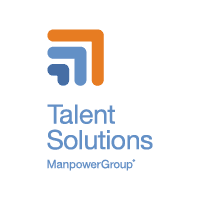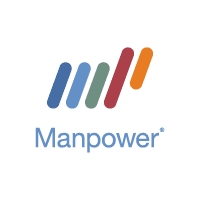Tense is an understatement: the situation on the labour market has reached new extremes. With demand exceeding supply in many areas, discussions are often centred around the shortage of skilled workers and the war for talent. New requirements arising from digitalisation, demographic changes, and trends such as the “Great Resignation” in the wake of the coronavirus pandemic are just some of the underlying causes. Against this backdrop, companies urgently need to develop new approaches to make recruitment and, above all, the planning of their talent pool, ready for the future.
This is where the concept of talent acquisition offers a solution by embedding short-term recruitment into a long-term strategy. Through talent acquisition, companies ensure that they are not just reacting to staffing needs, but proactively making sure they can acquire the necessary skills and employees in the future. In the following, we’ll give you an overview of what lies behind this approach.
What is talent acquisition?
Talent acquisition should by no means be misunderstood as a buzzword for recruitment. Rather, it represents an innovative approach that goes beyond the mere act of hiring employees. While recruitment aims at filling positions tactically in the short term, talent acquisition has a more strategic perspective. Beyond day-to-day operations, it anticipates future staffing needs, the development of relevant skills, and prevailing trends in the labour market.
The benefit for HR planning is obvious and, in principle, relevant for companies across all industries. However, the concept is particularly helpful for fast-growing companies. Otherwise, there is a risk that unsuitable candidates will be recruited under time pressure, e.g., those who don’t fit in with the corporate culture. Talent acquisition also offers a remedy for the shortage of skilled workers, especially in industries with constantly evolving skill requirements, such as IT and tech. Candidates with specialised skills are also scarce in many other areas, such as in the legal and medical fields. All in all, talent acquisition is becoming increasingly important across the board.
Companies with strong competitors can also reap the benefits of this strategic approach. Through measures such as employer branding, they can stand out from the crowd of other employers. Sourcing in specific network environments and expanding sourcing strategies with new channels and tools represent further options for talent acquisition, as do newsletter campaigns. Dedicated talent acquisition software supports implementation. Suitable cloud tools as well as AI solutions for controlling KPI measurement/identification can help to enhance the effectiveness of the process.
A further advantage of talent acquisition that you should not underestimate is the filling of management positions. Succession planning is essential from a strategic point of view and can be significantly optimised with early planning. At the end of the day, talent acquisition results in an enlarged candidate pool, a better cultural fit of candidates as well as faster and better recruitment. It goes without saying, however, that the activities should be tailored to the respective target group. The decision-making behaviour and needs of Generations X and Y differ, while Generation Z brings further changes. Particularly in the IT sector, tech workers of varying generations exhibit significant differences in terms of soft skills.
Talent acquisition vs. recruitment: What’s the difference?
Talent acquisition vs. recruitment: Making this comparison doesn’t mean that recruitment has suddenly become obsolete. On the contrary, recruitment is and will remain a necessary element of the talent acquisition strategy. Recruitment continues to deal with tactical issues such as sourcing, candidate screening and interview planning. Other areas of recruitment include assessments, candidate selection and hiring.
However, there is much more to the concept of talent acquisition than merely “recruitment” –namely a recruitment strategy that takes a long-term view. Areas of activity include recruitment planning, marketing, and employer branding. Technology-driven approaches such as talent analytics are introduced, while onboarding and succession planning are managed. The needs of candidates are prioritised through targeted improvement of the candidate experience and a seamless candidate journey. Talent acquisition also focuses on the current urgent need to upskill existing employees. Nevertheless, there are also HR activities that don’t fall within the remit of talent acquisition, such as promotion, retention and development, conflict resolution and workplace incidents.
8 tips for successful talent acquisition
Clarify long-term business goals and align your talent acquisition strategy with them
Develop profiles for important roles (criteria: hard skills, soft skills, cultural considerations)
Develop an employer brand strategy
Maintain a careers portal, foster the development of your talent pool and new pipelines, introduce an internal referral bonus
Diversify recruitment strategies/channels and leverage networking channels
Passive recruitment (approach already employed candidates)
Systematise your recruitment approach, increase diversity and minimise bias
Establish an onboarding/offboarding concept: understand why employees leave your company
How to improve your recruitment strategy
The broader focus of talent acquisition opens up a whole new dimension of talent management. Nevertheless, having an optimal recruitment approach is part and parcel of a forward-looking strategy. The agenda includes specifying and aligning job details as well as the aforementioned diversification of recruitment channels. Systematic processes for CV screening, interviews, assessment, and verification ensure increased efficiency. There is also the potential for improvement in the areas of offer, negotiation, and onboarding in many places. Your processes will become even more efficient if you draw on the support of external partners – for example, your tech personnel can rely on the IT specialists at Experis. In any case, it’s vital that you integrate your recruitment in a strategic manner and set it up for the future with a talent acquisition strategy.
To help you recruit appropriately qualified IT candidates to fit into communication-driven teams, why not take advantage of Experis’ range of specialised recruitment services?


